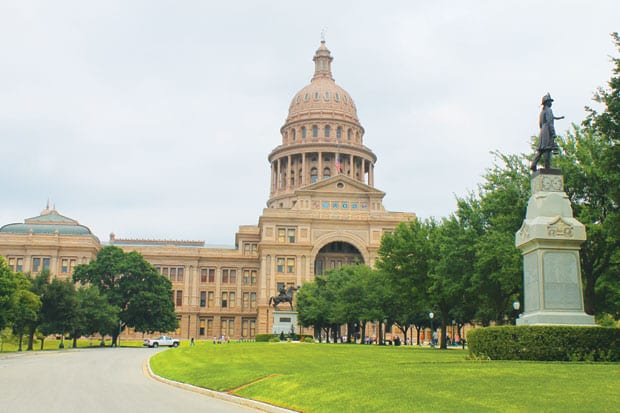 Stupid. Shortsighted. Treasonous.
Stupid. Shortsighted. Treasonous.
And that’s just how I feel about HB 1118, filed last week by freshman Rep. Mike Schofield, R-Katy. The bill, if passed would allow state agencies to deny open records requests by non-Texas residents or entities.
Big deal. Why should I care, James?
Thanks for asking. Let me tell you.
I already have a lot on my plate as a general assignment reporter for a small weekly. I pump out about 2,000 words a week and conduct a ton of interviews on every topic from same-sex marriage to dog rescues. While I regularly file requests for and cull through public records, I can only do so much in my efforts to keep government accountable. Some of that data is easily available online — like campaign finance reports and state budgets. But some isn’t. In fact, a lot isn’t.
Despite my best efforts, I can’t do it alone. That’s where you come in.
As a citizen, taxpayer and voter, you have access to public records. After all, you as a taxpayer have paid for our state’s imbecilic defense of its same-sex marriage ban. You’ve paid for Rick Perry to codify a ban on same-sex marriage. You’ve paid for Gov. Greg Abbott, who in his former role as the state’s attorney general, defended it. You’ve paid legislators to spew hateful epithets against transmen and women and block nondiscrimination ordinances.
Wouldn’t you like to know who told them to say it? Wouldn’t you like to know if there were any nasty text message exchanges between the legislator and his lobbyist?
That stuff is damning, and costs people their jobs in some cases.
If that doesn’t make you mad, consider two scenarios.
One: say you’re a Texan who moved with your wife and three kids to California. Say you learned your gay cousin died in prison. You have a hunch he was brutally beaten to death. You’re mad. You want the e-mails, the letters and any internal correspondence among all related individuals within the Texas Department of Criminal Justice. You wanna know what the hell is going on. You request the records. But you’re denied the records because you live out of state.
Two: say a national LGBT think tank like the Williams Institute at UCLA’s law school is conducting national research based in part on state public data requests that help media and policymakers alike understand the burdens facing our community. Say the institute files an open records request for data from various states including Texas. Say the institute is denied the information, forcing Texas to be omitted from a crucial and potentially groundbreaking study.
Now here’s where you may say: Well, I can get someone in state to do it.
Sure, you can.
You can also decide to not vote. You can decide to trust your lawmaker will do “the right thing” after, say, an Equality Texas lobby day. You can trust we march into war based on lies, costing dollars and lives.
You may be disillusioned after the most recent elections. You probably cried and yelled. You probably wanted to give up. Maybe you wanted to leave Texas for California. While you think you don’t have much recourse left, you’re wrong.
It is your right to file open records requests and, as we say in journalism, shine a light on what your government is doing. Open records are one of the most powerful forms of civil disobedience in this damned democracy game. Getting those records can make a hunch into a fact. That fact can incite outrage, reform and rebellion.
Knowing what your government is doing is not, as Rep. Schofield’s bill indicates, a privilege. It is a right.
But it is also an obligation.
Don’t forget it.
Bill would limit access to state public records
















